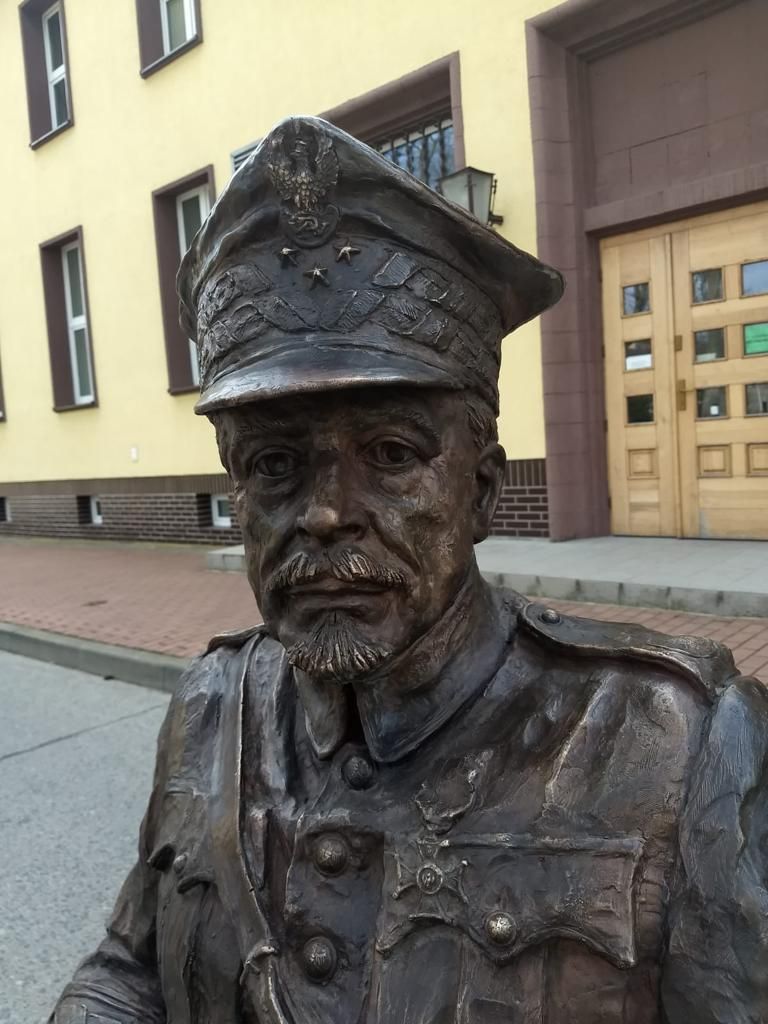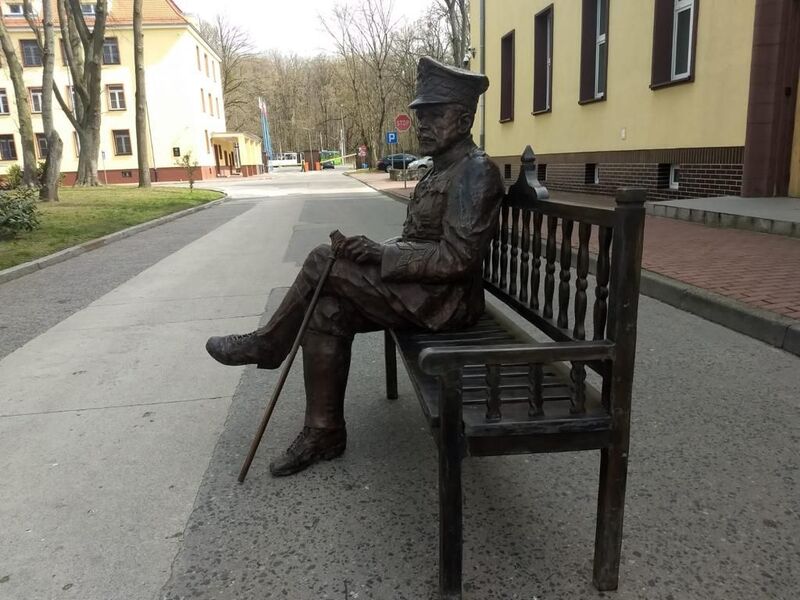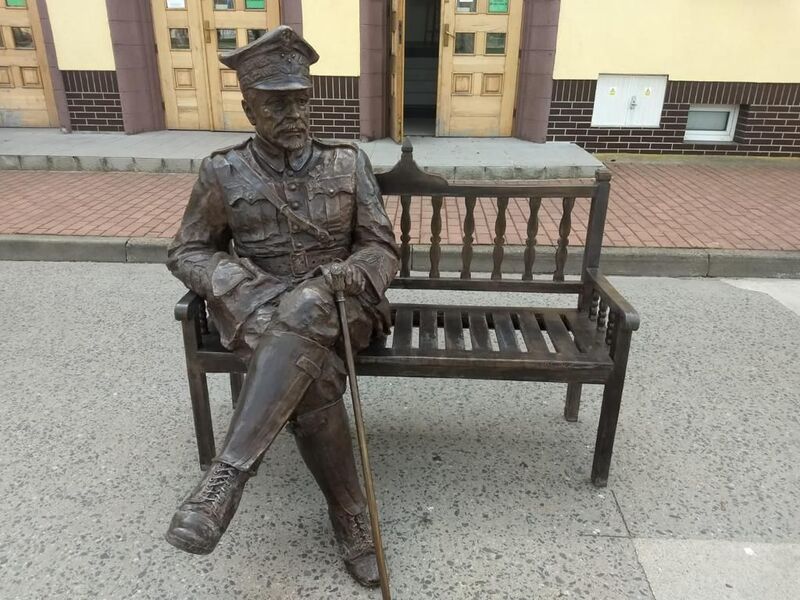The sculpture - a bench with the figure of General Józef Haller was created on the initiative of the 12th Mechanized Brigade in cooperation with the Institute of National Remembrance, Szczecin Branch. The idea of the originators was to honor the patron of the brigade and introduce the figure of this great patriot to the inhabitants of Szczecin. That is why the bench was placed in front of the fence of the Blue Brigade barracks, on the Hallerczyków Square, on the communication route leading to the recreational areas of the city.
A photograph of the general, probably taken in 1920 in Zakopane, served as a model for the artistic concept. The sculpture shows the General in the uniform of the Blue Army, sitting on a stylish bench. The insignia of the general of arms and the Silver Cross of the Virtuti Militari War Order can be clearly seen. The General is holding a cane in his left hand.
The bench was financed by the IPN’s Office of Commemorating the Struggle and Martyrdom.
Józef Haller von Hallenburg (13 August 1873 – 4 June 1960) was Lieutenant General of the Polish Army, a legionary in the Polish Legions, President of the Polish Scouting and Guiding Association (ZHP), and a political and social activist.
Haller was born in Jurczyce near Cracow. He studied at Technical Military Academy in Vienna and subsequently served with the Austrian Army, resigning after being promoted to the rank of captain. In 1916, during the First World War, he became commander of the Second Brigade of the Polish Legion, in particular the units which fought against Russia on the Eastern Front.
In 1918, in the aftermath of the "Charge at Rarańcza", as Commander of the 2nd Polish Auxiliary Corps with the Austrian Army, Haller broke through the Austro-Russian front line to Ukraine, where he united his troops with Polish detachments which had left the Tsarist army. He protested the Treaty of Brest-Litovsk and continued to fight against the Russians with his 2nd Brigade of the Polish Legions (later, the 4th and 5th Rifle Divisions of the Polish II Corps).
Under the pressure of the Germans, who after the Peace of Brest-Litovsk regarded the presence of Polish troops in Ukraine as illegal, his corps was interned, while he managed to escape to Moscow. He arrived in France in July 1918, where on behalf of the Polish National Committee he created the Blue Army allied to the Entente. In the following months his army fought against Germany. In 1919, at the new Army's head, he arrived in Poland and was dispatched to the Ukrainian front. In 1920, Haller seized Pomerania and entered Gdańsk in the name of Poland, and during the Bolshevik War he commanded an army of volunteers.
In 1920–1927 Haller was an MP. After the May Coup of 1926 he was ordered into retirement. He co-organized an opposition party, the "Front Morges".
At the time of the invasion of Poland in 1939, Haller was living abroad. In the years 1940–1943 he served as Minister of Education in Władysław Sikorski's Cabinet. After 1945, he settled in London as an exile.


